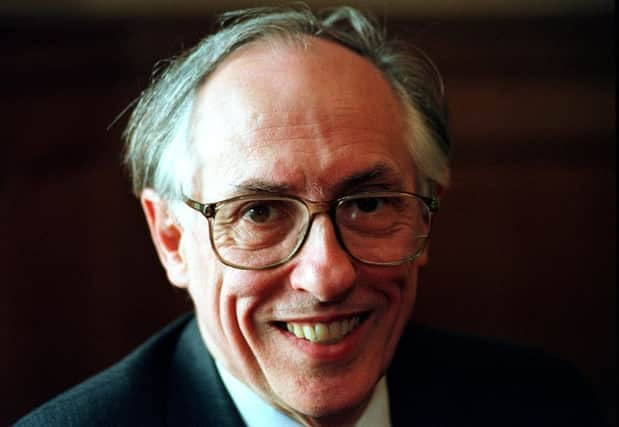Leaders: Scots must have say in civil liberties


In health, for example, not everything was devolved to Edinburgh. A range of issues such as abortion, embryology and genetics were judged to be too morally sensitive. These were reserved to Westminster.
In criminal justice too, there were exceptions to the wholesale devolution of criminal justice, including drugs, firearms and terrorism legislation.
Advertisement
Hide AdAdvertisement
Hide AdThis last one in particular has posed a challenge to relations between the Holyrood and Westminster administrations, especially in the years since 9/11, when a new and intense focus was brought to ‘the war on terror’.
The problem is that the line between anti-terrorist measures and domestic law enforcement is by no means clear-cut in every instance.
Increasingly, the fight against terror atrocities has involved impinging on the civil liberties of the entire population, with implications for wide areas of how the law operates on a day-to-day basis. The distinction between anti-terror law enforcement and normal criminal law enforcement has sometimes become difficult to ascertain.
This is more than of technical legal importance. In a democracy, it matters where accountability lies. Where there is confusion about which legislature is responsible for such important matters, political and public scrutiny can become lax. Clarity is required if we are to know which ministers to hold to account.
Which is why Alex Salmond is right to register his displeasure as First Minister at a lack – if indeed there has been a lack – of discussion and consultation between the Home Office and the Scottish Government on proposed new anti-terror measures to combat British-born jihadists returning home from Syria and Iraq.
It is imperative that any such measures are fully discussed with the authorities that would be charged with implementing and enforcing them. That would include Police Scotland, the Crown Office and cabinet secretary for justice Kenny MacAskill.
We have been here before. In 2007 the SNP and Scottish Labour were united in condemnation of Tony Blair’s attempt to do a diplomatic deal with Colonel Gaddafi that included the early release of the Lockerbie bomber from a Scottish jail.
On that occasion Mr Salmond and his predecessor Jack McConnell stood shoulder to shoulder and said Mr Blair had no constitutional right to do any such thing.
Advertisement
Hide AdAdvertisement
Hide AdOf course, Mr Salmond may currently be motivated at least in part by a desire to make a point about Westminster’s attitude to Scotland, to boost the campaign for independence.
That having been said, there is an important point of principle here, and Westminster politicians would do well to heed it.
A brutality bereft of any mercy
VERIFICATION is understandably hard to come by. But the video released yesterday by Islamic State (IS) militants would appear to show the brutal beheading of another US journalist. The family of Steven Sotloff had feared the worst after the staged execution of James Foley, and yesterday their worst fears seemed confirmed.
At the end of the video of Mr Foley’s death – a gruesomely efficient PR stunt by a group well versed in the power of social media – IS had warned that Mr Sotloff would die if President Barack Obama did not call off the US military bombing of the insurgents’ positions in Syria and Iraq.
Mr Obama simply could not have acceded to this demand. To have done so would have simply allowed IS greater freedom to continue its murderous progress towards establishing a caliphate in the region, mercilessly slaughtering those who did not fit with its strictures on who that caliphate should encompass.
The president had to press on with his military operation, knowing full well that IS would, in this instance, be as good as its word. That knowledge must have been hard to carry. IS is a challenge for the West, and one we show little sign currently of knowing how to rise to.
This is not a group that reserves its brutality for Westerners with high propaganda value, who can be presented as the representatives of a free democratic culture these jihadists abhor. No, its brutality seems hardwired, meting out violence just as mercilessly to fellow Muslims and fellow Arabs, with little or no compunction.
It is a challenge that requires a sophisticated response, but it must be among our highest priorities.